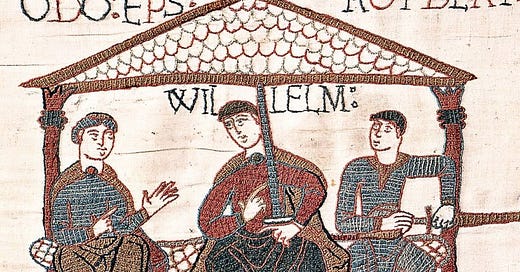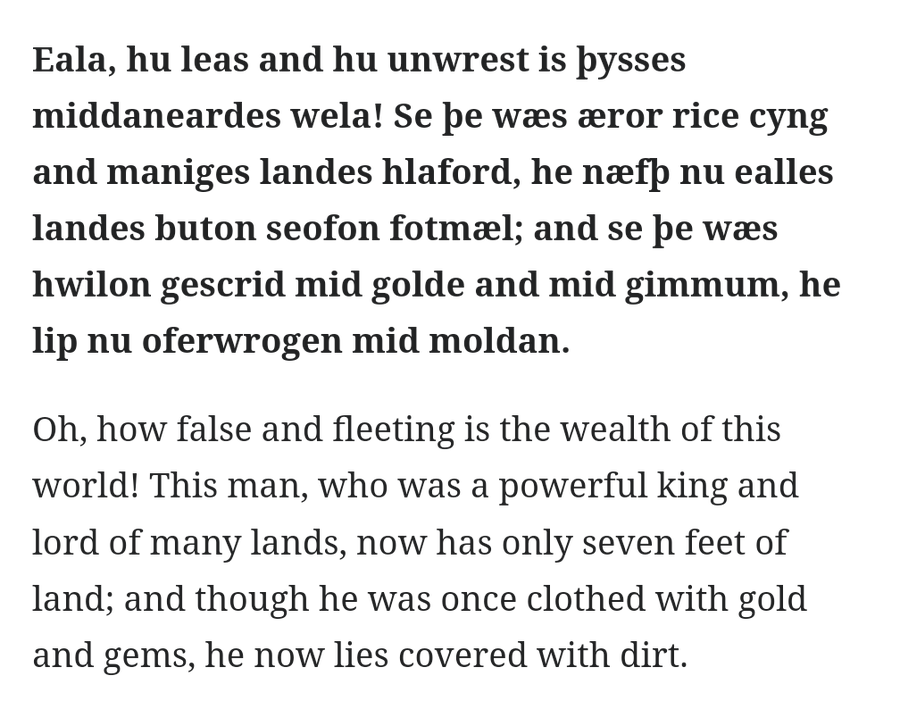The Anglo-Saxon Chronicle, annals compiled in Old English initially in the reign of Alfred the Great (late 9th century), includes an epitaphic notice for William the Conqueror (d. 1087). Although written in prose, it has a strongly poetic feel, and sounds wonderful in Old English. I’ve translated it into quasi-Shakespearean rhyming iambic verse as follows.
Alas, how false is worldly wealth, how fleet Our lives! This man, ere now a mighty king And lord of many lands, now seven feet Of earth confines. Who formerly did fling About him raiments sewn with gems and gold, Now lies attired by dirt, and dust, and cold.
The Anglo-Saxon, with straight translation, reads (for this I acknowledge the account on Twitter under the name Wylfcén):
Chaucer’s Knight’s Tale (lines 1987-91) takes a slightly different angle on the inevitability and relief of mortality:
“Just so there never lived a man," he said, "In all this world, but must be sometime dead. This world is but a thoroughfare of woe, And we are pilgrims passing to and fro; Death is the end of every worldly sore."
In the original Middle English:
Right so ther lyvede never man," he seyde, "In al this world that somtyme he ne deyde. This world nys but a thurghfare ful of wo, And we been pilgrymes passynge to and fro. Deeth is an ende of every worldes soore."






Very interesting, Armand; I did not know the A-S Chronicle stretched to William I (a Norman king's as good/bad as a Danish one, I suppose).
Thank you for the recordings of the originals. Is “middaneardes” genitive form of what we would translate as “middle earth”? Did Tolkien derive inspiration from this concept/word?